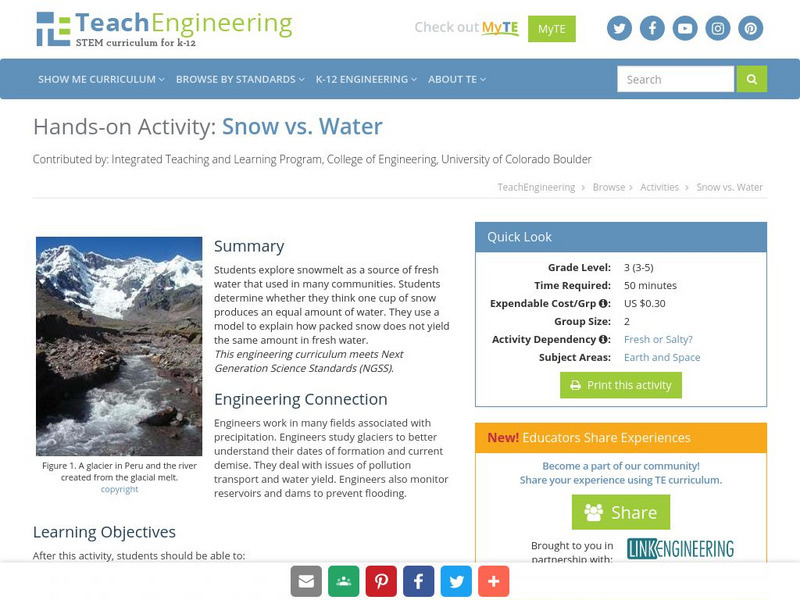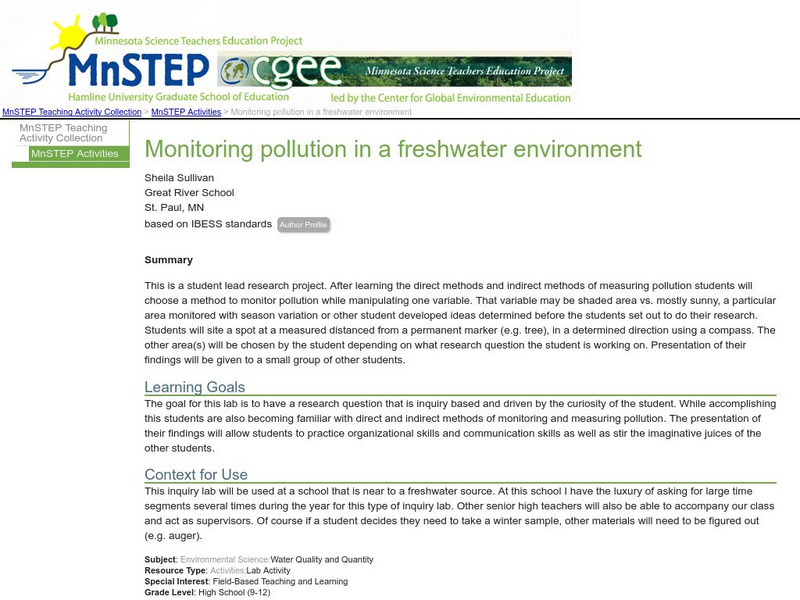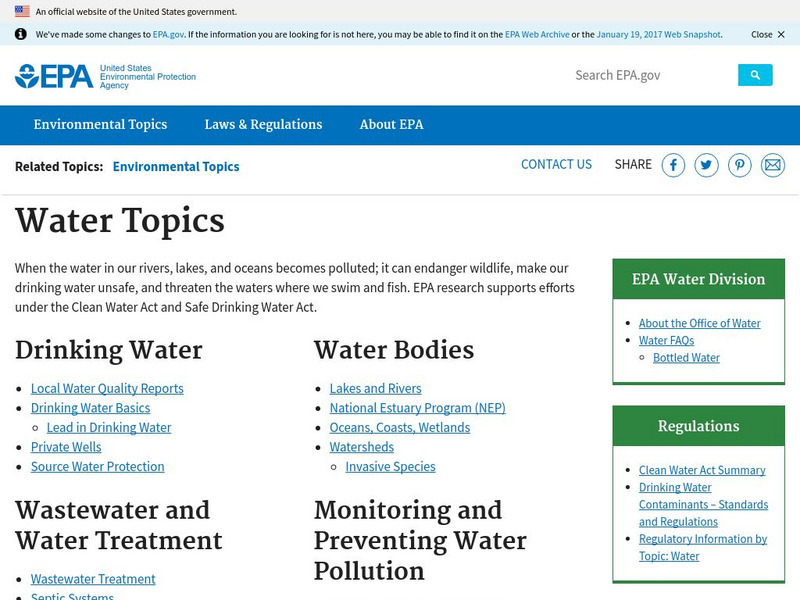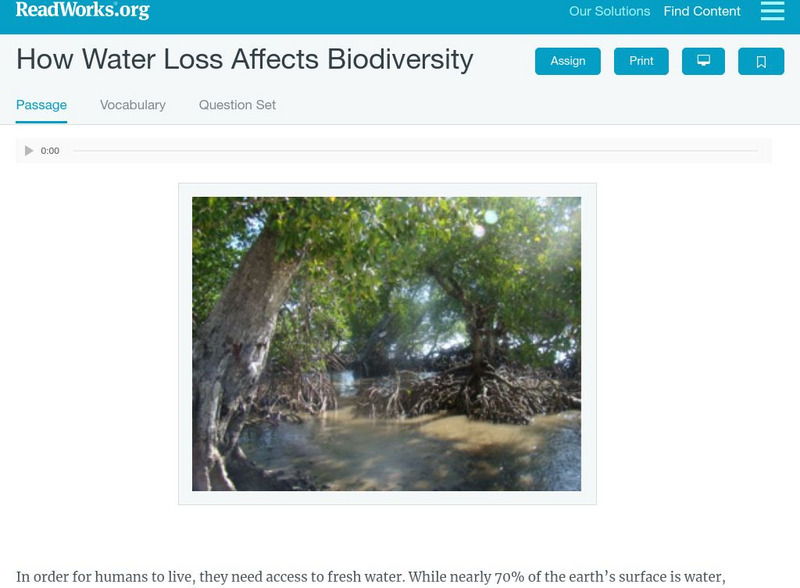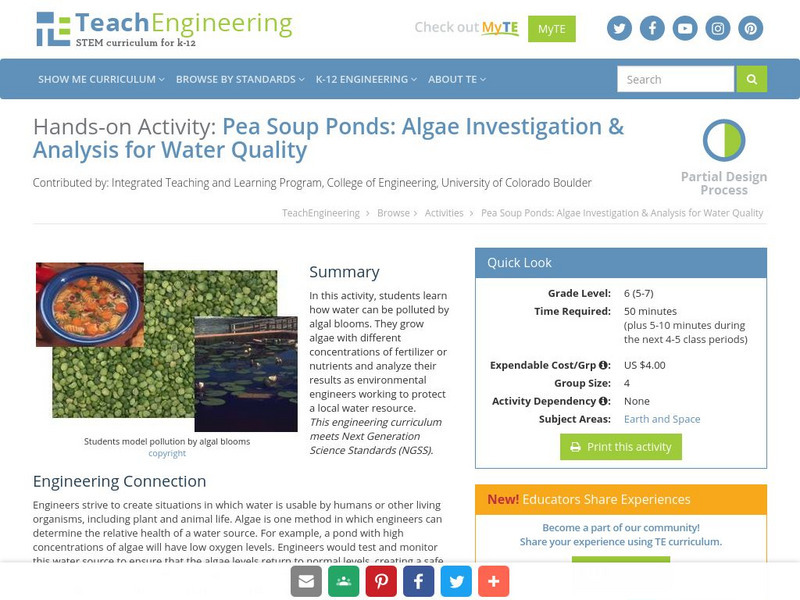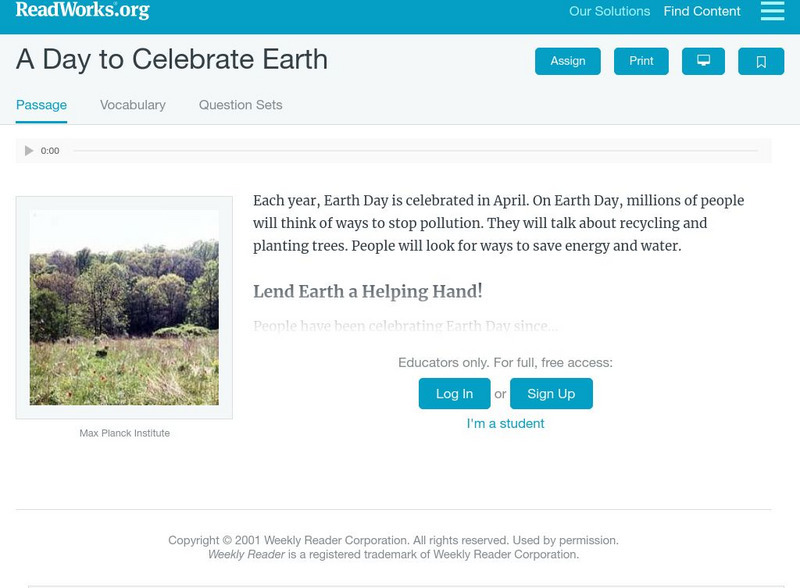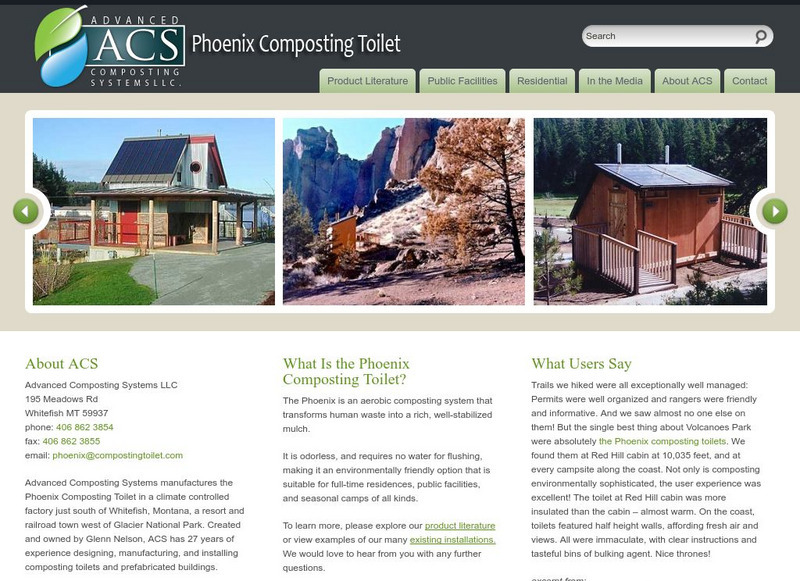Other
Extox Net Fa Qs: Water Treatment
Discusses many options of water treatment, the contaminants that the treatments are focused on, how the treatment works, and common treatment systems.
PBS
Pbs Learning Media: Environmental Public Health: Human Impact on Water Quality
In this lesson, students explore human impact on water resources, investigate the quality of their community's water supply, and consider ways to clean up and avoid further pollution. (Note: Some of the links may no longer work and...
TeachEngineering
Teach Engineering: Snow vs. Water
Engineers work in many fields associated with precipitation. Engineers study glaciers to better understand their dates of formation and current demise. They deal with issues of pollution transport and water yield, and they monitor...
Science Education Resource Center at Carleton College
Serc: Monitoring Pollution in a Freshwater Environment
During this research project, students will choose either the direct method or the indirect method to monitor and measure pollution while manipulating one variable. They will develop a research question to work on and present their...
Other
Fnal: Supplying Our Water Needs
A cross-curricular lesson working out needs of a town where fish are dying in the local waters, how can water be purified, how daily activities impact the water supply, and what role does chemistry play in the way individuals use water...
Read Works
Read Works: Ryan's Well
[Free Registration/Login Required] Students read about 15-year-old Ryan Hreljac who created a foundation that has raised over $1.5 million to build wells in Africa. A question sheet is available to help students build skills in comparing...
US Environmental Protection Agency
Epa: Water Resources: Water Bodies
Learn about EPA's work to protect and manage water resources and what you can do to help.
TeachEngineering
Teach Engineering: Microbes Know How to Work!
Students design systems that use microbes to break down a water pollutant (in this case, sugar). They explore how temperature affects the rate of pollutant decomposition.
Read Works
Read Works: How Water Loss Affects Biodiversity
[Free Registration/Login Required] Students read about how varying amounts of fresh water can affect biodiversity in a region. A question sheet is available to help students build skills in reading comprehension.
TeachEngineering
Teach Engineering: Would You Drink That?
This activity focuses on getting students to think about bacteria, water quality and water treatment processes. Students develop and test their hypotheses about the "cleanliness" of three water samples prepared by the teacher. Then they...
Read Works
Read Works: Dead Zone
[Free Registration/Login Required] Students read about the "dead zone," an area in the Guld of Mexico where no fish can live due to pollution from fertilizer. A question sheet is available to help students build skills in cause and effect.
Other
Catawba Riverkeeper: Threats to Our Lake and Water
The most common problem on the Catawba River and its lakes is sedimentation. Sediment carried by stormwater runoff from construction sites in North Carolina has been documented as the leading source of non-point source pollution to...
Province of British Columbia
Government of b.c.: Teacher's Guide to Clean Air: The Clean Air Crusaders [Pdf]
The 'Clean Air Crusaders' help teachers work with students to educate them about all kinds of air pollution and ways to improve our environment.
TeachEngineering
Teach Engineering: Pea Soup Ponds
In this activity, students will learn how water can be polluted by algal blooms. They will grow algae with different concentrations of fertilizer or nutrients and analyze their results as environmental engineers working to protect a...
Other
Coalition of Oregon School Administrators (Cosa): Microbeads, Mega Problem [Pdf]
A textbook activity where students work in teams to design a device or technique that will prevent plastic microbeads from entering local lakes and streams. They will use the engineering process to design a solution and then present...
TeachEngineering
Teach Engineering: Optimize! Cleaner Energy Options for Rural China
Students work in engineering teams to optimize cleaner energy solutions for cooking and heating in rural China. They choose between various options for heating, cooking, hot water, and lights and other electricity, balancing between the...
PBS
Nh Pbs: Nature Works: Estuaries
Learn more about estuaries when you visit this informative site. This resource provides locations of and weblinks to estuaries in the United States.
Read Works
Read Works: A Day to Celebrate Earth
[Free Registration/Login Required] Students read about Earth Day and ways students can help the Earth. A question sheet is available to help students build skills in author's purpose.
Other
Advanced Composting Systems: Phoenix Composting Toilet
Explains how composting toilets work, their benefits to the environment, useful applications, and information on how to choose a system.
Other
Missouri Conservationist Online: Karst Groundwater
Article highlighting Missouri's karst groundwater systems and the need to protect the land from pollution. Includes diagram of how the system works.
Other
Pipeline: Soil Characteristics Demystifying Dirt [Pdf]
Soil is the foundation of conventional on site wastewater treatment.The drainfields used with on site systems work because the soil around the trenches acts as a filter and removes organic matter, some of the nutrients present in...




